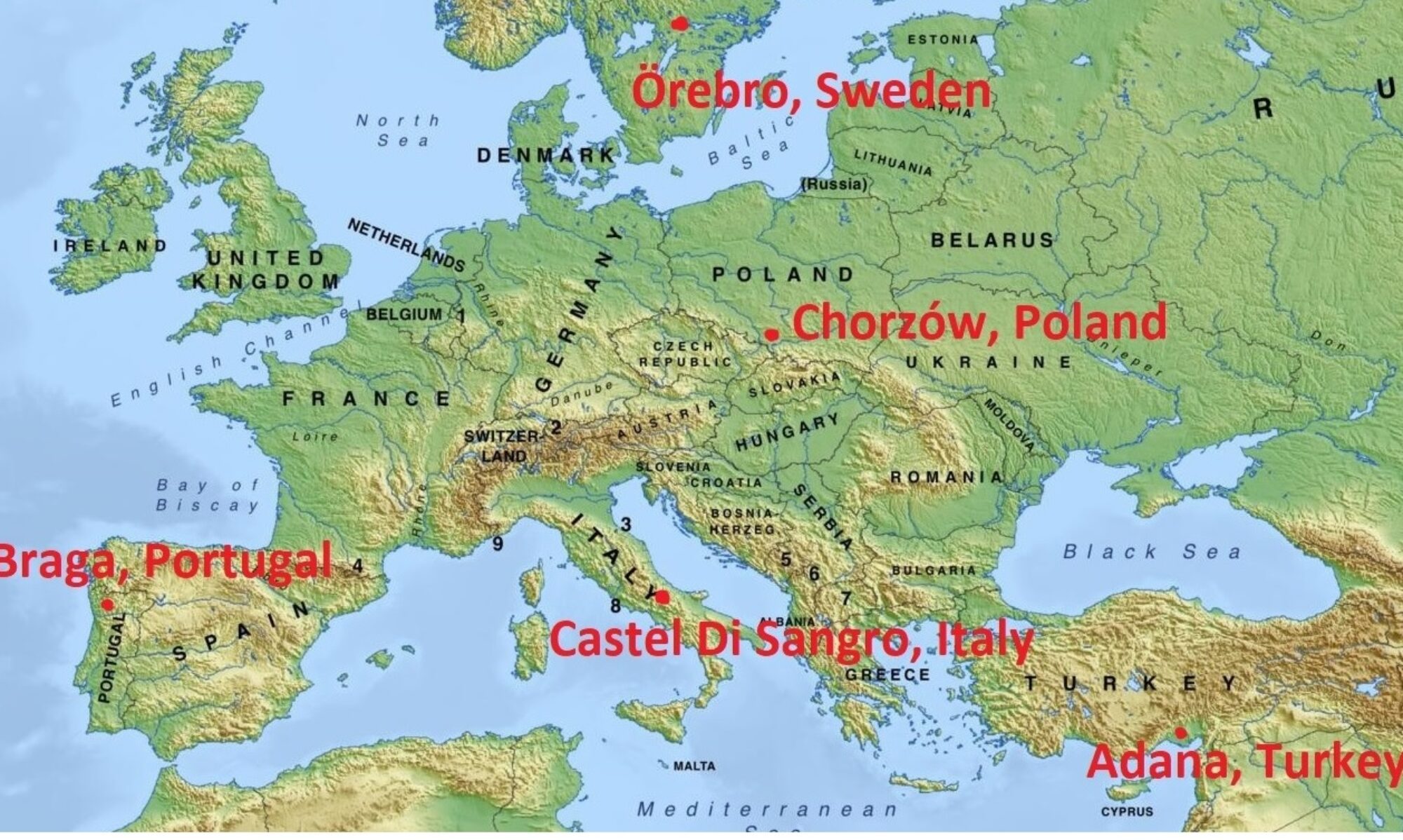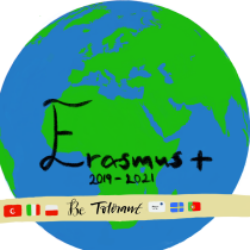This is an Erasmus+ project with the project code: 2019-1-SE01-KA229-060405

The European Commission’s support for the production of this publication does not constitute an endorsement of the contents, which reflect the views only of the authors, and the Commission cannot be held responsible for any use which may be made of the information contained therein.
Project summary – BE TOLERANT
The Erasmus+ project BE TOLERANT involved 5 schools in 5 different European countries: Italy, Poland, Portugal, Sweden, and Turkey. The project was active from 2019-2022.
Each school had identified a need to work with a project about tolerance to strengthen our students and prevent intolerance, racism, ethnic discrimination, aggression, and violence. The partners all have different cultural and educational backgrounds which led to a good mix, for a successful project.
The objectives were:
– to develop civic competencies and increase the self-esteem of 120 students from 5 EU countries
– to facilitate understanding the concepts of “tolerance” and “mutual understanding” at a personal level and in the European context
– to equip participants with practical examples for acting as civic-minded citizens
– to raise awareness about diversity and cultural identities promoting social cohesion
– to boost the feeling of belonging to the EU community
In accordance with Article 2 of the Treaty on the European Union, we believe that this international cooperation has helped our students prepare for living in a multicultural society being aware of the EU values and appreciating diversity. The students participating have gained increased tolerance and mutual understanding as active civic attitudes.
We decided to use an innovative approach, by using the Five Factor Model, in order to reach the overall aim of broadening civic mindedness emphasizing the importance of tolerance and mutual understanding impact on daily life. The Five Factor Model theory focuses on 5 personality dimensions:
– openness to experience: Here our students got to express their emotions and ideas using ART. We painted roosters, made posters, took photos, and on the topic of Tolerance through my eyes we made movies and a photo exhibition. We also created together for our Festival of tolerance and mutual understanding.
– extraversion: We had different team-building activities, sports competitions, and board games to stimulate our students’ assertiveness, sociability, and personality.
– conscientiousness: the students were taught self-discipline, planning, and working toward goals in our different tasks.
– agreeableness: working in international teams creating products together helped our students develop their cooperation skills. The tangible products we have created together are flashcards about the topic, two dictionaries, handmade bookmarks, and thematic puzzles.
– neuroticism: the students got to experience (un)pleasant emotions; anger, depression, anxiety, and vulnerability, during activities such as the emotional MUN in Portugal, creating films on the topic of tolerance (for example about bullying), in the workshop about weird things/stereotypes, playing games together and face winning/losing or simply by doing unfamiliar things. They will become aware of how intolerance is perceived by others; develop empathy and they will see how important is to be an active citizen.
The use of ICT during the activities, helped us share different tools to work with in schools, especially working through this unexpected covid period and having virtual meetings when we were not able to meet physically.
The activities were designed to develop tolerance, mutual understanding, intercultural competencies, and social and civic spirit. We felt that international cooperation let us broaden cross-cultural knowledge and understanding of the countries, cultures, and values strengthening the feeling of belonging to a united Europe.
A minimum of 24 students from each partner (aged 12-18) attended the project meetings. Turkey was a meeting for teachers (Poland attended virtually), Portugal and Sweden were physical meetings, and Poland and Italy were virtual meetings due to covid. Students were selected before the mobilities, using transparent criteria decided by each project partner taking into consideration: English skills, ICT skills, motivation, and involvement in the school-based activities. A number of 50 teachers were directly involved in the project mobilities, but each school had a team to facilitate better implementation of the project. Approximately 2700 students and 120 teachers/adults were indirectly involved in the project. Other participants involved were the administrative staff, students’ families, educational advisors, and representatives of the local authorities.
The tangible products of the project are two dictionaries, a photography exhibition, a calendar of the project, movies, e-books, flashcards, thematic puzzles, handmade bookmarks, project webpages, a project logo, and a brochure.
The intangible results are the development of life skills, key competencies, cultural horizon, intercultural understanding, team working skills, and knowledge about the topic.
The results are available on this website. The dissemination helped us reach an audience on both local, national and international levels.

